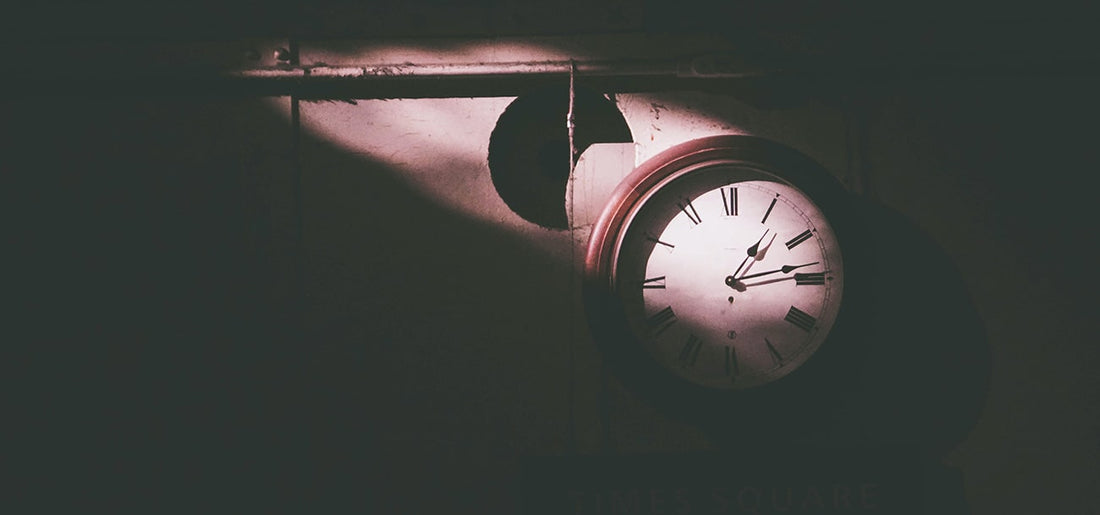Daylight saving time: 3 ways to avoid feeling tired when the clocks go forward

This year, daylight saving time will begin at 0100 on Sunday, 27 March.1
Daylight saving time, also known as summer time, is the practice of moving the clocks forward by an hour in the summer to ensure the days are longer and darkness falls at a later clock time. It essentially involves shifting an hour of daylight from morning to evening (and vice versa when the clocks go back).
Since its inception, there has been much debate over its pros and cons.2 Organisations that research sleep care are critical of daylight saving time, particularly the effect it has on public health and safety.3 They point to studies which indicate it increases the risk of heart-related problems, mood disorders, and motor vehicle accidents.4
Take, for example, the European Biological Rhythms Society, European Sleep Research Society, and Society for Research on Biological Rhythms. These 3 societies issued a joint statement to the EU Commission in which they advocated replacing daylight saving time with a standard time. Their statement offered to provide evidence which showed that replacing daylight saving time would reduce the incidence of cancer, reduce consumption of alcohol and tobacco, and improve performance at school and work.5 This eventually led to the EU Parliament voting to end daylight saving time in 2021.6
Following in the footsteps of these societies, the American Academy of Sleep Medicine adopted the position that the US should do away with daylight saving time in favour of a national, fixed, year-round time that aligns best with human biology.7
But how exactly does shifting an hour impact our sleep, as well as our health and safety? In this article, we answer that question and explore 3 ways to avoid feeling tired when the clocks go forward.
How daylight saving time affects sleep
To understand how daylight saving time affects sleep, we first need to understand there are 3 types of clocks: the sun clock, our body or circadian clock, and our social clock.
The sun clock is set by the rotation of the earth around the sun. The light of the sun and the darkness of the night act as signals that set our body clock. Ideally, both these clocks should be in sync. However, our social clock, set by societies, makes this difficult, with work activities and time with friends often requiring us to wake up or go to sleep outside of daylight periods.
Daylight saving time shifts our social clock an hour forward in the summer, which means less morning light and more evening light, and this shift can lead to our body clocks no longer being in sync with the sun clock or day-night cycles.8 This creates a feeling similar to jet lag.
Some might argue – “but it’s only 1 hour.”
One study found that this hour is capable of throwing our body clock so out of sync that it takes weeks to recover.9 And during this period, we risk facing a number of consequences including:
- less sleep10 (the Monday after the clocks change, people sleep 40 minutes less11 than they normally would)
- worse performance12 (studies show an increase in the number of workplace injuries13 and traffic accidents14 the day after the clocks change)
-
worse health (studies show the rate of heart attacks15 is higher the week after the clocks change compared to other weeks)
Waking up feeling tired because of daylight saving time can result in real-world consequences.16 Fortunately, there are plenty of ways by which you can mitigate these negative effects.
How to avoid feeling tired when the clocks go forward
After daylight saving time, the sun clock, body clock, and social clock are far from in sync.17 The best thing to do is to focus on resetting your body clock, which is influenced by behaviour, environment, and medications.18 Listed below are 3 tips for each of these 3 factors, which can help you reset your body clock and avoid feeling tired when you wake up.
1. Adjust your sleep schedule
The clocks moving forward means more evening light, and greater exposure to evening light can impact our body clock and push our sleep cycle towards a later bedtime.19
Counter this by gradually going to sleep an hour before you normally do in the run up to daylight saving time. That way your body adjusts to waking up earlier and you still get your usual amount of sleep – which should be between 7 to 9 hours.20
It’s also worth going out in the morning or exercising early to get more morning light (avoid working out in the evening or 4 hours to bedtime as this can impact your ability to sleep). Day-time exposure to light can help with resetting your inner clock.21
Try to avoid long naps in the afternoon, especially after 3 p.m., as that too can impact your ability to sleep.22 Your sleep is regulated by homeostatic and circadian processes. The former is referred to as process S, and is sleep pressure that builds up during the day. If you take a long nap, or a nap after 3 p.m., then you risk reducing sleep pressure, thereby making it difficult for you to fall asleep at night.23
2. Practice good sleep hygiene
It’s important to know how to sleep well, especially in terms of developing good sleep habits and an ideal sleep environment.
With daylight saving time resulting in more evening light, consider investing in blackout curtains or an eye mask to ensure you sleep in complete darkness. Furthermore, with people perhaps keen to enjoy spending time out in the evenings while it’s still light, it might be worth getting ear plugs or a white machine to ensure you block out sounds and sleep in silence.
Lastly, avoid using electronic devices or consuming alcohol, caffeine, nicotine or any other stimulant just before bed. Electronic devices emit blue light which, while not as powerful as sunlight, can still affect your body clock.24 Alcohol reduces sleep quality,25 while caffeine blocks receptors in your brain that help you to fall asleep.26
3. Try safe sleeping and waking supplements
While various medications exist on the market to promote sleep, their side effect profile and addictive potential limit their widespread use. By contrast, the over-the-counter supplement melatonin offers a more tolerable solution, that can help to accelerate sleep onset and sync your circadian clock.27
B・SYNC ON is the first clinically tested, over-the-counter supplement that can help sync your body clock and wake up with ease in the morning. It contains caffeine, vitamin B12, vitamin B5 and zinc - all-natural ingredients which combine to reduce feelings of fatigue, improve performance, and elevate your mood. And its patented delayed-release technology ensures you wake up naturally after a full night’s sleep.
If you’re struggling to align your sleep schedule, then click here to learn more about how B • SYNC ON can help.
Sources
- https://www.gov.uk/when-do-the-clocks-change
- https://jcsm.aasm.org/doi/full/10.5664/jcsm.7822
- https://www.ncbi.nlm.nih.gov/pmc/articles/PMC6692659/
- https://jcsm.aasm.org/doi/full/10.5664/jcsm.8780
- https://esrs.eu/wp-content/uploads/2019/03/To_the_EU_Commission_on_DST.pdf
- https://www.europarl.europa.eu/RegData/etudes/BRIE/2018/630308/EPRS_BRI(2018)630308_EN.pdf
- https://jcsm.aasm.org/doi/full/10.5664/jcsm.8780
- https://www.webmd.com/sleep-disorders/features/coping-with-time-changes
- https://pubmed.ncbi.nlm.nih.gov/17964164/
- https://pubmed.ncbi.nlm.nih.gov/23477947/
- https://www.sciencedaily.com/releases/2009/09/090901105148.htm
- https://www.researchgate.net/
- https://pubmed.ncbi.nlm.nih.gov/19702372/
- https://pubmed.ncbi.nlm.nih.gov/23477947/
- https://pubmed.ncbi.nlm.nih.gov/18971502/
- http://ncbi.nlm.nih.gov/pmc/articles/PMC6710480/
- https://www.ncbi.nlm.nih.gov/pmc/articles/PMC7205184/
- https://www.webmd.com/sleep-disorders/features/coping-with-time-changes
- https://www.sleepfoundation.org/bedroom-environment/light-and-sleep
- https://www.sciencedirect.com/science/article/abs/pii/S2352721815000157
- https://www.conemaugh.org/health-information/wellness-information/daylight-saving-time-tips-to-help-your-body-adjust
- https://www.nhlbi.nih.gov/files/docs/public/sleep/healthysleepfs.pdf
- https://www.rem42.ai/blog/how-to-sleep-well-at-night-2/
- https://www.ncbi.nlm.nih.gov/pmc/articles/PMC4734149//
- https://pubmed.ncbi.nlm.nih.gov/29549064/
- https://www.ncbi.nlm.nih.gov/pmc/articles/PMC6292246/
- https://www.psychiatrist.com/pcc/sleep/counter-agents-treatment-occasional-disturbed-sleep/







